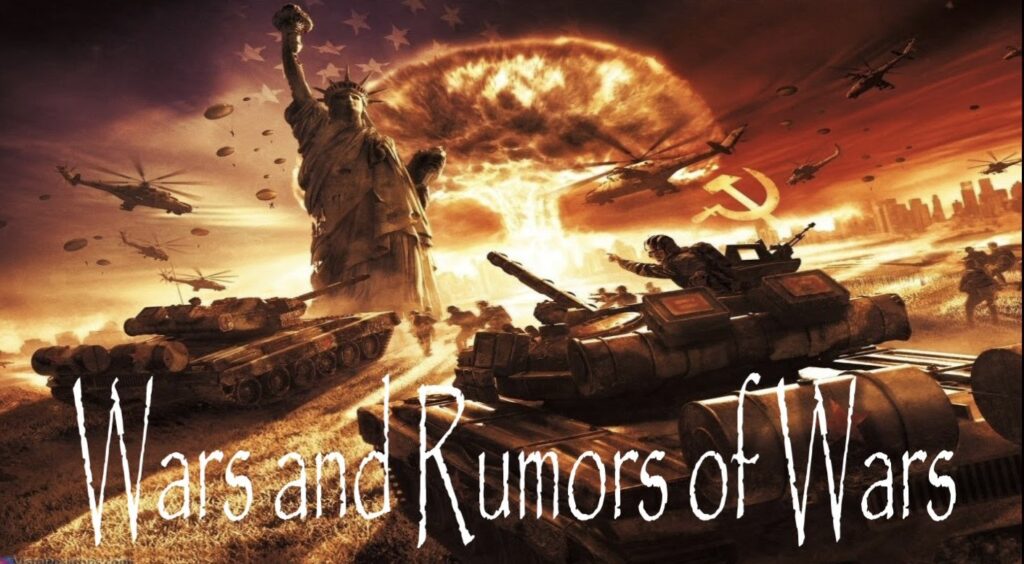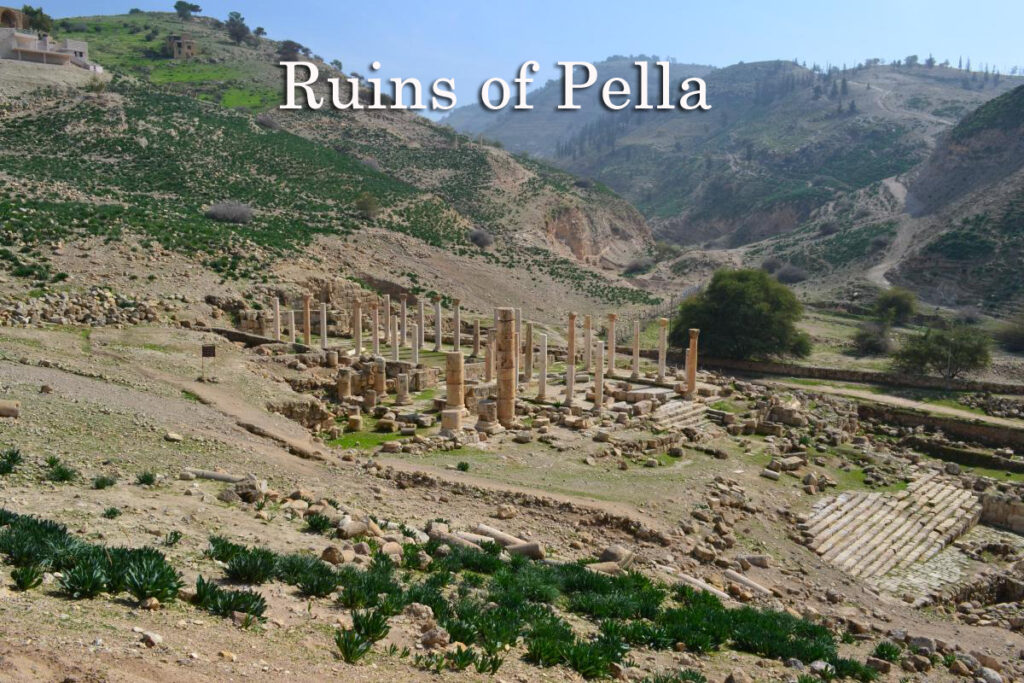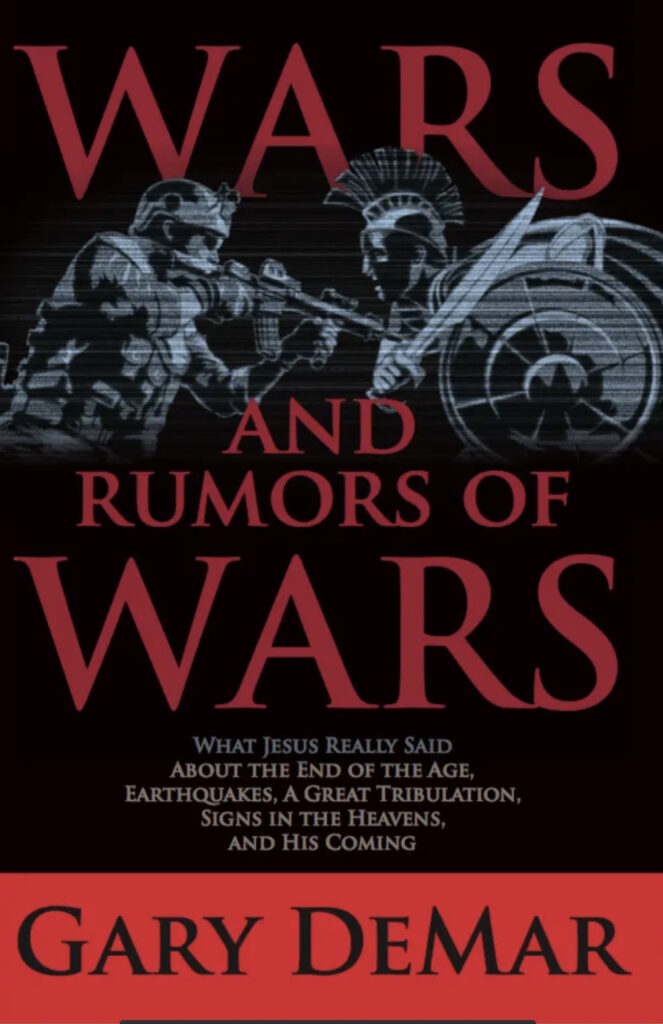
(Matthew 24:6-7 ESV) 6 And you will hear of wars and rumors of wars. See that you are not alarmed, for this must take place, but the end is not yet. 7 For nation will rise against nation, and kingdom against kingdom, and there will be famines and earthquakes in various places.
When reading the above verses, many prophecy gurus, pastors and eschatology enthusiasts have insisted that Jesus was referring to an all-encompassing world war thousands of years removed from its first-century context i.e. one that’s in our near future.
But the question is, why do so many interpret these verses in this manner? Is their conclusion supported by the context of the Olivet Discourse (Mt 24; Luke 21; Mk 13) or are they restating commonplace opinions that are assumed but not proven? I believe it’s the latter and the reasons are listed below. It’s incumbent upon us to be Bereans and determine for ourselves if these things are so (Acts 17:11).
My admonition is to avoid simply following the crowd. Why risk repeating the mistakes of the many who have been bullied to believe that they are not capable of doing their own research? We need to realize that what we believe is our responsibility before God. So, if after considering the below arguments, you aren’t convinced, then the time spent investigating these matters will have been worth it. That said, I think you will find the arguments compelling if you allow Scripture to speak for itself.
Following are some points to consider when attempting to answer these questions:
- Eisogesis (reading one’s presuppositions into the text) should always be avoided. We must allow the Bible to speak for itself (exegesis). Too often this hermeneutical principle is unwittingly ignored. In order to come to this world war 3 conclusion, one would have to read Matthew 24 in a vacuum and sequester it from the preceding chapters as well as from the other two synoptic accounts. Just after Jesus’s thrashing of the Jewish ruling class (Mt 23) and His targeting the city of Jerusalem, it’s inhabitants, and the Temple (Mt 22:7, 13; 23:35-38; 24:3), why would Jesus then launch into warnings of a global conflict? This would have nothing to do with “their” house being left desolate (Mt 23:38). What in the context would give credence to Jesus changing His focus to regions far beyond the Roman Empire?
- Flee Judea. Why did Jesus exhort his disciples to flee to the surrounding mountains of Judea if these wars were expected to be worldwide in scope? How could they escape a world war by retreating to local mountainous regions like Pella?

- Why Judea? Why didn’t Jesus tell his future 21st-century readers to “flee large cities and highly populated areas”? If Jesus was addressing us 2,000 year’s future, what relevance would fleeing Judea have to someone living on the west coast of Florida? Are we supposed to go to Judea so that we can flee from there? As silly as that sounds, this speaks to the absurdity of the modern prophecy writers’ claims.
- Audience relevance. It should not go without notice the number of times (15) in Matthew 24 alone that Jesus referred to “you” i.e. those to whom He was speaking. He was clearly speaking to them not us. Jesus said “YOU (referring to His disciples) will hear…” Therefore the wars had to have been confined to the time when the disciples and their followers were still living i.e. wars that took place throughout the Roman Empire (oikoumene) which was at the epicenter of the Olivet.
- Greek word “Mello”. This word is often hidden from plane view. In the ESV quoted above, it reads “and you will hear…” There is no time indicator. In contrast, notice how the YLT captures the precise verbiage which is not wrought with translational bias…”and ye shall begin to hear of wars…” Often hidden from our sight (because of translator presuppositions) is the Greek word “mello”, which means about to be or at the point of. The disciples were about to hear of wars and rumors of wars. Jesus’s prediction was even more starling given the relative peace in the Roman Empire during the beginning of the Pax Romana. Again, this would confine the wars to the first century.
- “This generation”. “All of these things” (Mt 24:34), including wars and rumors of wars throughout the Roman Empire, were confined to the generation to which Jesus was speaking. (Mt 24:34 ESV) “Truly, I say to you, this generation will not pass away until all these things take place.”
- Context. Ask yourself what in the preceding 23 chapters of Mathew would lead one to conclude that Jesus is all of a sudden referring to a worldwide conflict? Everything in the NT is Israel-centric so referring to conflicts outside the Roman world seem rather strange.
- Wars between nations. Many nations, including Israel, were under Roman Empire control. So, although these “wars” were at times referred to as “civil wars” and “civil strife”, they were national uprisings.
- Kingdom against Kingdom. Open wars of different tetrarchies and provinces against each other. 1. Jews and Galileans against the Samaritans, for the murder of some Galileans going up from the feast of Jerusalem. 2. The entire nation of Jews against the Romans and Agrippa, other allies of the Roman Empire when Florus was procurator. 3. Civil War in Italy while Otho and Vitellius were vying for the empire. (Adam Clarke)
- Historical evidence. We have the corroborating testimony of many historians (not sympathetic to Christianity) that wars broke out throughout the empire. From AD 40-50, wars produced death tolls of: 50,000 – Mesopotamia; 10,000 – Jerusalem; 20,000; 20,000 – Caesarea, 20,000 by Syrians; 13,000 – Scythopolis; 50,000 -Alexandria; 10,000 – Damascus. Since the population was approx. 300,000,000 at that time, that would be equivalent to 4,800,000 deaths today (population approx 8,000,000,000). So, the war deaths within the Roman Empire were not insignificant, especially in light of the fact that prior to Jesus’s Olivet declaration there had been a period of relative peace.
In conclusion, it’s my view that only through confirmation bias (reading our presuppositions into the Bible) do so many determine that Jesus was speaking of an Armageddon styled world war near the end of time… completely unmoored from its first-century Roman Empire setting. If you disagree (and that’s fine), comb through the entire New Testament and show me what passage you think supports a worldwide conflagration of warring nations. Nothing in the Olivet nor the preceding 23 chapters of Matthew corroborate this kind of geo-political global conflict. And that’s also the case with “all these things” predicted by Jesus. They are confined to the Roman Empire of Jesus’s day.
For more information: Gary DeMar has written an excellent book entitled “Wars and Rumors of Wars” that deals with this topic and many others within the Olivet. I would highly recommend picking up a copy of this book, especially if you have further questions.

